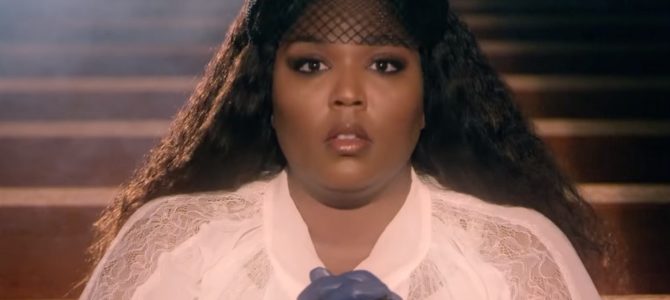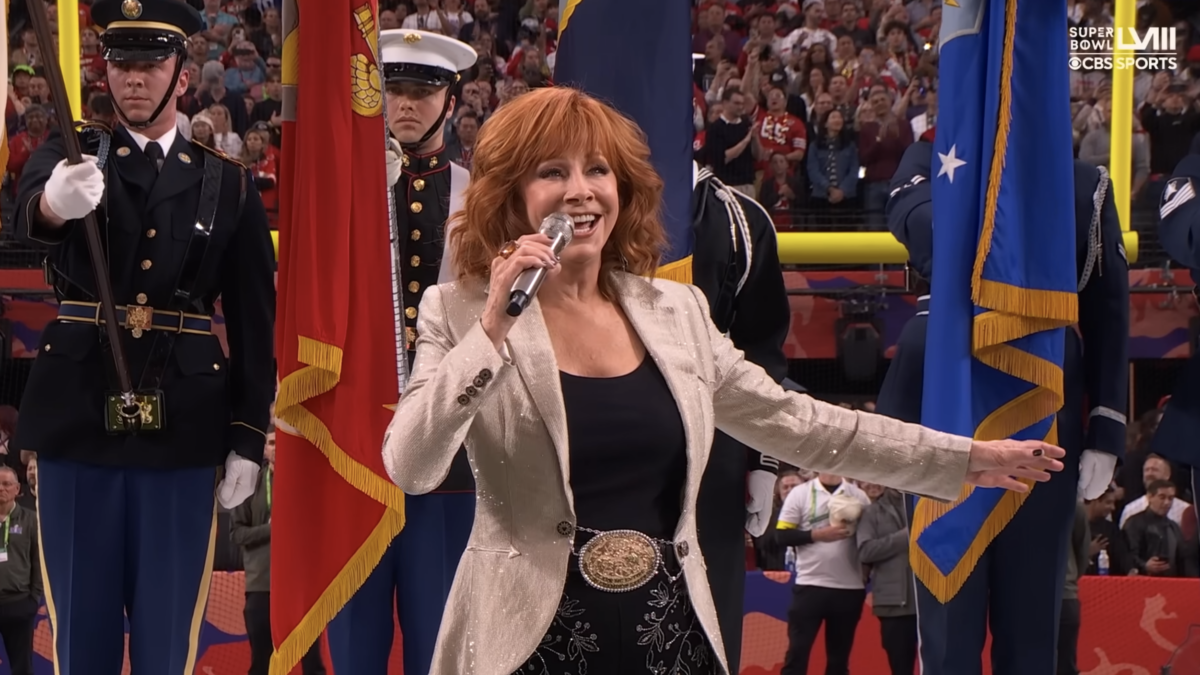
As she finally makes her well-deserved entree into the mainstream, Lizzo is revealing the identity of her soulmate. It’s Lizzo. This, of course, isn’t especially surprising—self-love is kind of her thing, the defining motif of her young career. Even those who only know her from the irresistible feel-good anthem “Good As Hell” know that.
Lizzo happens to tackle the theme—a popular if puzzling recurrence on the charts—more creatively, and more believably, than most. “Soulmate,” from her recently released album “Cuz I Love You,” has already crept into her most-played Spotify tracks, with more than nine million streams.
“I’m my own soulmate. No, I’m never lonely,” Lizzo sings. It’s good, but she probably did it better on “Scuse Me,” from 2016’s “Coconut Oil.” Along with “Good As Hell,” the title track made for an artful embrace of self-love too. (“I thought I needed to run, and find somebody to love, but all I needed was some coconut oil.”) You can hear the theme on “Juice” and “Fitness” and “Truth Hurts.”
Lizzo is vulgar in a way the aspiring vulgarians of our generation have to be: crass, loud, and often nude. At a time when few things are still shocking, she’s willing to be one of them. Her confident vocals and clever writing sell it. But I still can’t quite get past the self-love.
You hear it on “thank u, next” and “ME!” Like Lizzo, in “thank u, next,” Ariana Grande frames her best relationship as the one with herself. The sentiment is strikingly similar to “Soulmate:” “I know they say I move on too fast, but this one gon’ last, cause her name is Ari, and I’m so good with that.”
There’s obviously validity to the importance of introspection and self-respect. Self-obsession is different, and pop culture’s emergent concept of self-love flirts with it. But that’s not even the red flag here.
I’m worried that it’s a coping mechanism, especially for women. As the average age at first marriage ticks upward, young people almost seem to be searching for reasons they should feel okay about being single. In 2018, the percentage of 18-34 year-olds who said they didn’t have a steady partner peaked at 51 percent, up from 35 percent in 1986, the year the question was first asked in the General Social Survey.
A study commissioned by Tinder is helpful in explaining the self-love fad. Conducted among 1,000 18-25 year-olds last year, the poll found 72 percent “made a conscious decision” to remain single for a period of time. Cosmopolitan narrowed in on some of the survey’s key findings among women:
Results showed that around 25% of women say they feel empowered about not being in a relationship, whereas that number is only 17% for men. It appears that single millennial women are increasingly more willing to prioritize their own needs ahead of dating, when compared to men. Sixty-two percent of women surveyed said they’d made a conscious decision to be single to prioritize their own needs (compared to 47% of men), and 47% of women specifically said they’d chosen to be single to focus on studying (compared to 34% of men.)
“Historically, people blindly set out to cross off items on their young-adult-to-do list: Go to school. Work hard. Find a partner. Get married. Have children. Encourage your children to do the same. Rinse and repeat,” a Tinder “relationship expert” told USA Today. “Millennials are questioning norms and societal problems.”
Reacting in March to the General Social Survey data, dating coach Thomas Edwards Jr. told the Philadelphia Inquirer: “Working and creating financial stability and being into yourself is the new comfort zone, whereas putting yourself out there and seeking connection with the risk of rejection is something people don’t want to do.”
“We don’t want a world where people’s self-worth is contingent on their relationship status,” Tinder’s expert added. That’s true. But has the balance shifted too far? I’m not convinced this intentional singleness is totally intentional.
In 2017, a Pew poll of never-married adults found 59 percent said not having “found the right person” was a major reason for their singleness. Only 41 percent said the same for financial stability, and 24 percent for not being ready to settle down.
In 2014, Pew found 69 percent of unmarried millennials said they would like to marry. Back in 2015, Gallup “found adults in the 18- to 34-year-old age bracket expressing nearly as much desire as older adults to be married, even as they themselves were far less likely to be married currently.” In all likelihood, we don’t exactly want to be our own soulmates. But why are we attracted to the concept?
One 2017 survey found 42 percent of millennial women said they were more afraid of loneliness than cancer. (Twenty-four percent said being single had “negatively affected or sabotaged” their ability to “achieve their wellness goals” over the past year.) According to USA Today, a 2018 Cigna survey found “Generation Z (ages 18-22) and millennials (ages 23-37) rated themselves highest on feelings associated with loneliness.” There it is: the cliche of rising loneliness among the most-connected generations to ever live.
Lizzo is a complicated artist on many fronts (as is Grande)—with admirable wit and confidence and perhaps a less-admirable passion for unchecked vulgarity—but her performance of the self-love fad raises questions, and more about listeners than Lizzo, whom I suspect is very happy with herself indeed.
To the extent that artists can help fledgling twentysomethings avoid self-hate, and appreciate themselves and their lives whether they’ve found a spouse or not, I have no complaints. Yet I have to wonder whether this is a trend that provides false comfort to a generation longing for love but struggling to find it.









